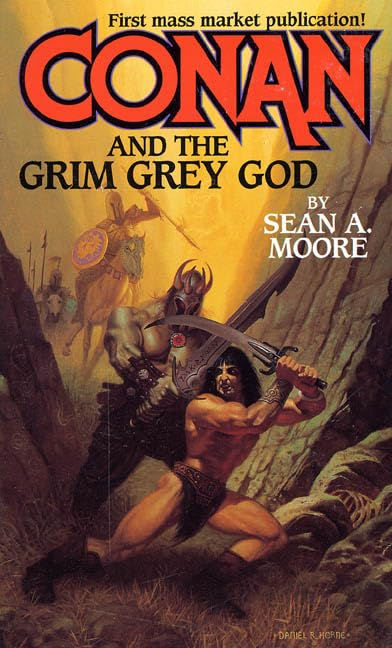What is Sword & Sorcery?
- Greg O'Driscoll
- Feb 20, 2023
- 3 min read
Updated: Mar 20, 2023
What is Sword and Sorcery? What makes it distinct from the broader classification of Fantasy? For fans of both genres these are familiar questions. This isn't the first piece to try answering those questions. I doubt it will be the last, so I will keep it brief.

Sword is Singular
The difference comes down to tone, the amount of magic present in the setting, and how the users of that magic are characterized. The level of grim and gritty, the prevalence and type of magical beings present in the setting, and the treatment of women are also worth noting. All those are relevant factors.
Personally, I think the answer is right there in the name, Sword and Sorcery. Sword is singular. There is one primary protagonist and whatever other tools they employ, even including sorcery, they live by the sword and pursue their ends alone. Think of it as the distinction between a detective story and police procedurals. Sam Spade solves the case alone. It takes the entire crew from CSI to catch the killer.
Sword & Sorcery and Sam Spade
The links between a sword and sorcery hero and the classic private eye could make an entire article by itself, but for now a simple comparison will work. The following is written by Raymond Chandler. Obviously, that means it’s about a detective. But I defy you to tell me Chandler isn’t writing about the hero of all Sword and Sorcery heroes, Conan the Barbarian. Take it away, Ray...
"He is the hero; he is everything. He must be a complete man and a common man and yet an unusual man. He must be, to use a rather weathered phrase, a man of honor—by instinct, by inevitability, without thought of it, and certainly without saying it. He must be the best man in his world and a good enough man for any world. I do not care much about his private life; he is neither a eunuch nor a satyr; I think he might seduce a duchess and I am quite sure he would not spoil a virgin; if he is a man of honor in one thing, he is that in all things … He is a common man or he could not go among common people. He has a sense of character, or he would not know his job. He will take no man’s money dishonestly and no man’s insolence without a due and dispassionate revenge. He is a lonely man and his pride is that you will treat him as a proud man or be very sorry you ever saw him. He talks as the man of his age talks—that is, with rude wit, a lively sense of the grotesque, a disgust for sham, and a contempt for pettiness. The story is this man’s adventure in search of a hidden truth, and it would be no adventure if it did not happen to a man fit for adventure. He has a range of awareness that startles you, but it belongs to him by right, because it belongs to the world he lives in. If there were enough like him, the world would be a very safe place to live in, without becoming too dull to be worth living in."

Born of the Pulp Era
This isn't coincidence. The archetypal private eye and the Sword and Sorcery hero both arose from the primeval stew of pulp fiction. This makes them each a kind of folk hero. Of course, all this is rhetorical—for now.
Epic fantasy, especially long runs of doorstop-sized books featuring heroes with magical powers, currently dominates the market. Sword and Sorcery is something of a footnote, a genre for fans of an earlier era, though one day the market might return to the lone warrior that lives and dies by the sword.



Comments